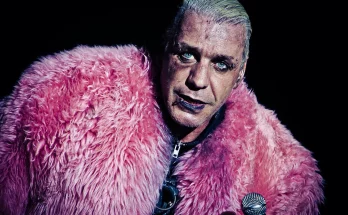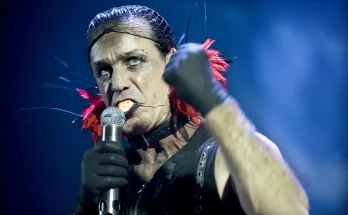In the ever-evolving landscape of television dramas, few characters have sparked as much intrigue, controversy, and fascination as Dexter Morgan. As the central figure of Showtime’s long-running series Dexter and its revival Dexter: New Blood, he represents a paradox that television audiences have learned to embrace: a man who murders for a living, yet somehow commands sympathy from millions of viewers. The recent resurgence of conversations around Dexter’s character has reignited debates over the nature of morality, justice, and the appeal of antiheroes in popular culture. The claim that Dexter remains the most sympathetic antihero of the series, despite being a serial killer, underscores how the show carefully balances flawed cops, corrupt motives, and the harsh realities of human imperfection to cast him not as a monster, but as a strangely relatable and even noble figure in a world riddled with moral failures.
The backdrop of Dexter is a Miami where law enforcement, politics, and the criminal justice system are often portrayed as deeply flawed. Viewers are introduced to detectives and officers who are motivated as much by ego, ambition, and selfishness as by a genuine desire for justice. While some of the cops are portrayed as hardworking and ethical, many others embody incompetence, corruption, or hypocrisy. This environment creates a narrative ecosystem where Dexter, despite his brutal hobby of killing criminals, emerges as a comparatively honest figure. Unlike his colleagues, he doesn’t wear the mask of moral superiority. His dual life—as a blood-spatter analyst by day and a vigilante serial killer by night—comes with an unusual form of candor. Dexter admits to himself and, through his narration, to the audience, that he is a killer who has learned to channel his impulses according to “the Code of Harry,” a set of ethical guidelines created by his adoptive father to direct his murderous tendencies toward those who deserve it. This honesty is disarming in a world where the people around him lie, cheat, and manipulate to achieve their own ends under the guise of legitimacy.
The concept of the antihero in television often revolves around individuals who subvert traditional notions of morality while simultaneously compelling viewers to root for them. From Tony Soprano to Walter White, the golden age of television has given us a gallery of men who live in shades of gray. Yet Dexter stands apart in that his moral framework is far more complex and paradoxically more principled than many of those around him. His need to kill is pathological, but through Harry’s guidance, it becomes a tool for achieving a kind of justice in a system that repeatedly fails to deliver. Criminals who slip through the cracks of legal procedures, exploit loopholes, or buy their way to freedom find themselves in Dexter’s crosshairs. Unlike corrupt cops or politicians who exploit the system for personal gain, Dexter uses his “dark passenger” to bring balance to a world teetering on moral chaos.
Part of the reason Dexter remains sympathetic is the emotional depth and vulnerability hidden beneath his calculated persona. Early in the series, he confesses to feeling incapable of genuine human connection, describing himself as hollow and incapable of love. Yet over time, audiences witness cracks in this self-perception. His relationships with Rita, Debra, and later his son Harrison reveal that Dexter is far more capable of human emotions than he initially believed. These glimpses of tenderness make him relatable, reminding viewers that beneath the monstrous veneer lies a man grappling with the same desires for love, family, and belonging that everyone shares. This vulnerability invites empathy in a way that traditional villains rarely do. Dexter does not revel in cruelty for its own sake; his killings are meticulously controlled and directed at those who, in the audience’s moral calculus, deserve it. This distinction allows viewers to rationalize their support for him, as his darkness serves a utilitarian purpose.
In contrast, the flaws of the supporting characters highlight just how corrupt the world of Dexter truly is. Figures like Sergeant James Doakes, while dedicated to exposing Dexter’s true identity, are often consumed by rage and impulsivity. Doakes is painted as morally upright but also violent and abusive in his pursuit of justice, blurring the lines between righteousness and obsession. Later characters, such as the corrupt law enforcement officials in Dexter: New Blood, showcase how institutional failures create more danger for society than Dexter himself. When cops take bribes, plant evidence, or allow dangerous criminals to walk free, the audience is invited to ask: who is truly more dangerous—the killer who follows a strict code, or the officers who abandon theirs? By juxtaposing Dexter against these figures, the series consistently pushes viewers to reevaluate their assumptions about morality and justice.
What sets Dexter apart as the most sympathetic antihero is also the way his story constantly reflects back on the audience. Viewers are complicit in his murders because of the show’s use of inner monologues, first-person narration, and emotional framing. We are not mere observers of his actions; we are his confidants, the silent witnesses to his secrets. Dexter often addresses the audience directly, letting us into his private thoughts and doubts in a way no other character does. This creates intimacy, forging a bond between viewer and killer. The audience is made to feel like an extension of Harry’s code, silently endorsing Dexter’s choices and rooting for his success even when his actions are abhorrent. This psychological relationship is crucial to making Dexter the most sympathetic antihero, as it ensures viewers rarely see him as a villain but instead as a partner in a mission to cleanse society of its worst elements.
The show also leans heavily on the idea of duality—daylight versus darkness, order versus chaos, family man versus predator. Dexter’s struggles mirror the universal conflict between the roles society demands we play and the impulses we try to suppress. Everyone has a “mask” they wear to navigate professional, personal, and social obligations. Dexter’s mask happens to conceal something monstrous, but the theme resonates with audiences because it reflects the dissonance between who we are and who we present to the world. In this sense, Dexter’s predicament is an exaggerated metaphor for a very human experience, making him more relatable than many of the supposedly “good” characters around him.
Critically, Dexter’s sympathy also arises from the emotional resonance of his failures and downfalls. While he often manages to stay one step ahead of danger, the series does not shy away from depicting the devastating consequences of his actions. The death of Rita, Debra’s decline, and the estrangement from his son Harrison remind audiences that Dexter’s choices are not without cost. These moments strip away the fantasy of the heroic vigilante and force both Dexter and the audience to grapple with the collateral damage of his life. Unlike corrupt cops or manipulative criminals who often escape accountability, Dexter is repeatedly forced to confront the weight of his sins. This accountability, even in moments where he cannot escape it, deepens the audience’s sympathy, as it positions him as a man who suffers as much as he inflicts suffering.
The revival series Dexter: New Blood complicates this narrative further by showing how the cycle of violence extends into the next generation. Harrison, Dexter’s son, inherits both the trauma of his father’s actions and hints of his own darkness. This continuation of the story forces audiences to consider whether Dexter’s attempts at morality through Harry’s code were truly effective, or whether they simply perpetuated the cycle of violence. And yet, even as Dexter’s journey ends in tragedy, audiences are left with an enduring sense of his humanity. His love for Harrison, however imperfect, cements him as more than just a killer. He is a flawed man who, despite the weight of his sins, tried to navigate a corrupt world with a personal brand of justice that resonated deeply with those who watched him.
What makes Dexter remain the most sympathetic antihero of the series is not simply that he kills the “bad guys” while the cops fail; it is that his character embodies the contradictions and imperfections of the human condition. He is both predator and protector, monster and man, liar and truth-teller. He forces audiences to question their own moral boundaries: how far would we go if the system failed us? Would we cheer for a killer if he targeted those who had escaped accountability? And why does it feel easier to forgive Dexter’s sins than those of the supposedly “good” characters around him? These questions linger long after the final credits roll, cementing his place as not just a character, but a cultural phenomenon in the exploration of morality on screen.
In a world filled with flawed cops, corrupt motives, and broken systems, Dexter endures as the most sympathetic antihero because he offers something those around him cannot: a brutal, uncompromising form of justice wrapped in vulnerability, humanity, and honesty. His story is not simply about killing; it is about the masks we wear, the darkness we hide, and the moral compromises we make in a world that is rarely black and white. For all his flaws, Dexter Morgan remains one of television’s most enduring reminders that sometimes the line between hero and villain is not only thin but irrelevant, and that sympathy can be found even in the darkest of places.



